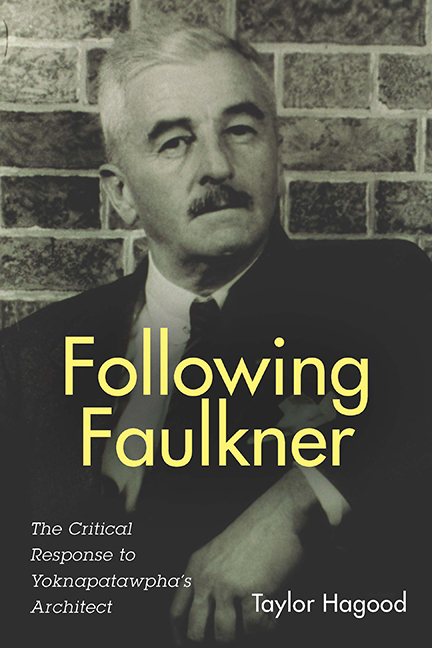Forecast: Future Trends in Faulkner Scholarship
Published online by Cambridge University Press: 27 April 2017
Summary
I want to close this book by very briefly speculating on where Faulkner scholarship may be going in the future. Undoubtedly there will be developments in the field that no one can now see coming. You who are reading this book come to it with a background and set of experiences that may prepare you to see things that no other scholar has. Likewise, as changes in intellectual directions continue, doors will be opened that will make perfect sense to a new generation of readers and scholars even though previous generations would have had no way of imagining them. All of that said, I think there are some indicators of the directions Faulkner studies will be taking in the immediate future, and I mention these to provide some guidance for those entering the field at the moment.
First, I would note that the history of the field has shown that certain central concerns of Faulkner's work always bear re-examining in a new context. The concerns with class, race, and gender that arose in the theory era still hold today, as does a global approach to Faulkner. A particularly noteworthy example is the study of Native Americans in Faulkner, as Indigenous Studies continues to find traction in southern literary studies, of which Faulkner remains a part. Lewis Dabney and other critics discussed the Native presence in Faulkner decades ago, and now that line of interest has returned, showing promise of continuing to gather strength. Two books of note that have recently included treatment of Faulkner's Indians are Annette Trefzer's Disturbing Indians and Melanie Benson Taylor's Reconstructing the Native South. With the 2016 Faulkner and Yoknapatawpha Conference's theme being Faulkner and the Native South it seems fair to predict this trend's continuing.
Meanwhile, certain fields of inquiry are picking up steam and will likely intersect more and more with Faulkner studies. One of these is disability studies, which I described at the end of the previous chapter; a scholar interested in constructs of normality and disability could well follow this path, which has only just begun to be explored.
- Type
- Chapter
- Information
- Following FaulknerThe Critical Response to Yoknapatawpha's Architect, pp. 133 - 138Publisher: Boydell & BrewerPrint publication year: 2017



